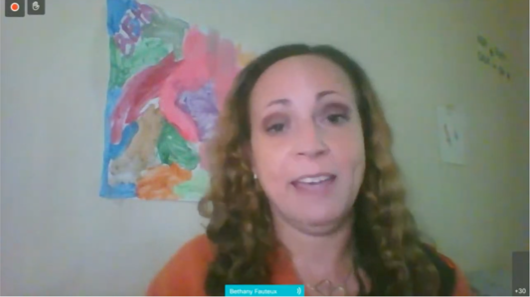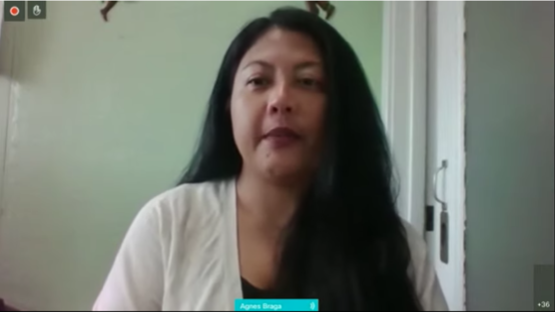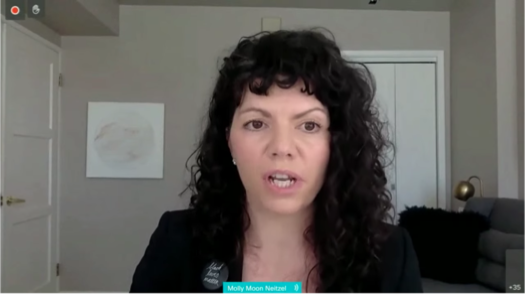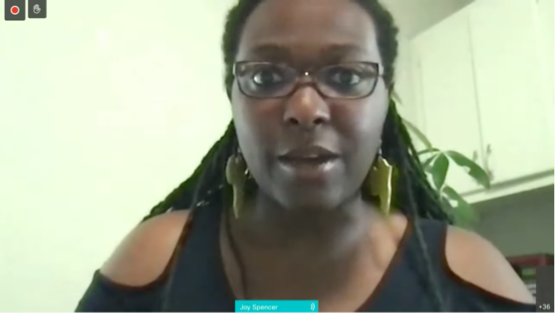After Compelling Testimony to the Ways and Means Committee, Working Mothers Call on Congress to Pass Paid Leave and Support Affordable Child Care
Contact: press@paidleaveforall.org
FOR IMMEDIATE RELEASE
Washington, DC — In a House Ways and Means Committee hearing, entitled, “Paid Leave, Child Care and an Economy that Failed Women,” Chairman Richard Neal and Committee Members heard testimony from five women from across the country about how the lack of a permanent, national paid leave program and other vulnerabilities in our care infrastructure have personally burdened them and their families. One of the women, Bethany Fauteux, is a member of Paid Leave for All’s Voices of Workers Advisory Group, and several others were affiliated with the campaign’s steering committee partners.
Chairman Neal doubled-down on his commitment to investing in paid leave and affordable child care, opening the hearing by stating: “Women are already telling us what they need—paid family and medical leave and child care that they can count on. That’s why I felt so strongly that for this hearing, we needed to hear directly from working women. We need to talk to them instead of talking about them.” See his full opening remarks here.
Paid Leave for All applauds Chairman Neal and Members of the Committee for their leadership in elevating the voices of working women and mothers, and is grateful that they shared their stories and demonstrated the urgency of passing a permanent, national paid leave program in the American Jobs and Families Plan.
Below are some of the highlights from the compelling testimony of the witnesses in yesterday’s hearing:

“To keep a roof over our heads, I had to return to work 3 weeks after giving birth. As I took care of other mothers’ children, the pain of my C-section stitches didn’t compare to the pain of not being with my own brand new baby. About a year later, I stopped working in child care. I gave up a career I loved and know is so critical because I was able to make more money working in the food service industry.”
“My lowest point came one day when the school called the restaurant to say I had to get my son, and then my mom called to say she was having a cardiac episode and I had come right away to take her to the hospital. I felt pulled in so many directions, failing in all of them. Would my boss cut my hours for the rest of the week? I was trying to be everything to everyone and failing at all of it.”
– Bethany Santos Fauteux, working mom and former child care worker

“Sadly, my story and concerns about childcare are not unique. My brother and sister-in-law are both nurses who do not receive any financial assistance for childcare. They relied on my mother to care for their baby. My mom is currently recovering from a surgery. So, I am helping care for her during her recovery, as well as my brother’s 1-year-old, and sometimes their 4-year-old too. My family’s story is just one example of how challenging it is to balance work and family responsibilities. This pandemic has made things even harder for most of us.”
– Agnes Braga, working single mom, school speech language pathology assistant

“Our company’s total premium costs for the state program are less than what it costs for a single 12-week leave for one of my management employees when I was covering the entire cost on my own. The administration has been smooth for our business, with access and use equally easy for our employees. Since the state benefits are capped, I am able to ‘top off’ the paychecks for employees so that they receive their full pay while out on leave. Everyone in the country should be able to be covered by a similar social insurance family leave program.”
– Molly Moon Neitzel, small business owner

“I had a difficult pregnancy, and was without any paid leave. Throughout my pregnancy, I struggled to keep food and water down, and I battled headaches and dizziness. I had to suspend my event management work because I was simply too sick to be on my feet much of the time. I needed a desk job. It was stressful looking for work while pregnant, but I landed a position through a temp agency. I was grateful, but also keenly aware that I lost wages every time I had to ask for time off for a prenatal appointment, which was frequent because of my high-risk pregnancy.”
“I knew that as soon as I gave birth, I’d lose my source of income. To build my savings, I got a second job at a call center, which also offered no paid leave. Despite being constantly nauseous and dizzy, I worked as many hours as I could because I needed the savings. After all, the bills would not stop coming when my baby arrived. Once I gave birth, I spent my limited savings quickly. It was terrifying having a newborn and no income; we struggled with basics like rent and food. I wanted to work, but there was no affordable child care in my community. Parents sit on waitlists for years. Like many parents, I was caught in a Catch-22: I wasn’t eligible for many child care assistance programs because I didn’t have a job, but I couldn’t get a job because I didn’t have child care.”
– Joy Spencer, working mom, director of a non-profit for women
###
The Paid Leave for All campaign is a growing collaborative of organizations fighting for paid family and medical leave for all working people.